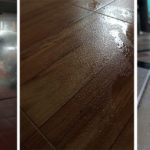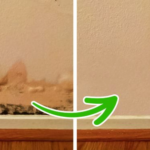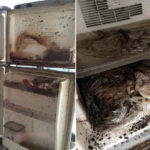There are clear reasons why your house smells bad, particularly because of the humid weather we’ve been having these days. Prolonged humidity can also cause unpleasant odors and mold in hidden places that can be dangerous to your health. Here are 3 common areas where mold and bad odors occur whenever the weather gets humid.
1. Base of walls
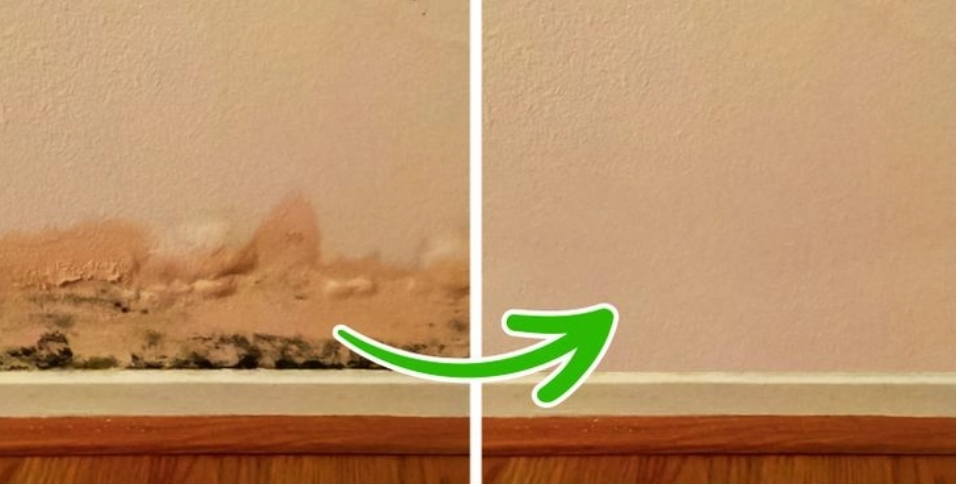
When humidity occurs, the first signs of mold and unpleasant odors in the house usually come from the base of walls. This is because it’s a place where mold often hides, so we need to be really careful to detect and remove it. To address this issue, you can:
– If the area is small, you can clean it yourself with soap and water. Even better, use mold-resistant foam or vinegar. Pour it directly on the base of the walls and clean it with cleaning tools.
– In case the area is larger, where mold and unpleasant odors may have become hazardous, you should call professional technicians to handle it.
But most importantly, prevention is always the best solution. Try to keep everything in the house dry, use a good ventilation system, and you can also consider getting a dehumidifier to control the humidity in the rooms.
2. Carpets

If your apartment has wall-to-wall carpets or even just a small rug, you will notice the damp and moldy smell when it’s humid. In this case, you need to deal with the carpet to reduce the odor. You can follow these steps:
– Sprinkle baking soda and then use a vacuum cleaner. It will help clean the dirt and odor. For more careful treatment, you can sprinkle baking soda on the carpet and let it sit overnight to absorb the odor, then use a vacuum cleaner to remove it.
– You can also try using specialized carpet cleaning products, steam cleaners, or even better, hire professional cleaners to do this job more effectively.
3. Large patches on the walls
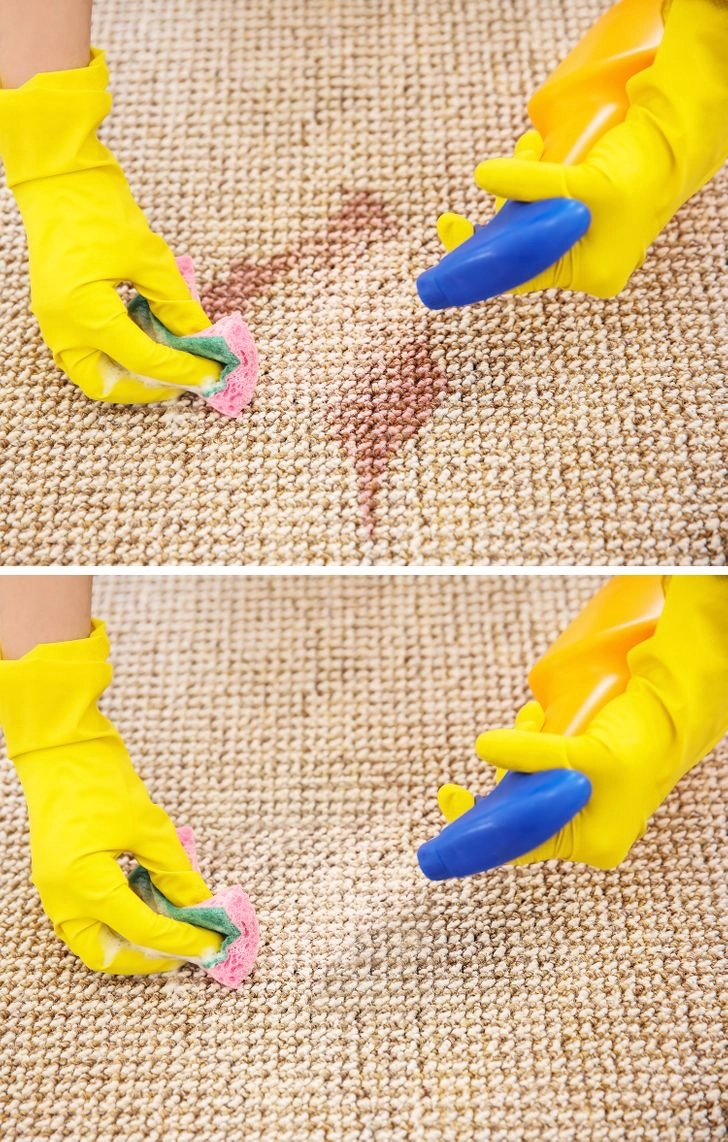
Wall patch before (left) and after cleaning (right).
It’s undeniable that humidity causes many patches on the walls of your house to peel off. When you touch it, it feels damp and uncomfortable. There are a few useful methods you can consider to fix this issue.
– Create a mixture of white vinegar and warm water, then pour it into a spray bottle and wipe the walls clean. It works to both clean and remove the odor.
– Another way is to mix ammonia with clean water, then apply the mixture to the walls, wait for a few minutes, and rinse with warm water. Besides cleaning, ammonia will also help you get rid of the unpleasant smell.
According to Phunuvietnam.vn
Use Tea Bags to Get Rid of Odors and Grease in an Oil-Free Fryer
 Odors and Grease in an Oil-Free Fryer’>
Odors and Grease in an Oil-Free Fryer’>Is your air fryer emitting foul odors and filled with grease? Discover the simple solution to cleaning your oil-free fryer using tea bags!
























